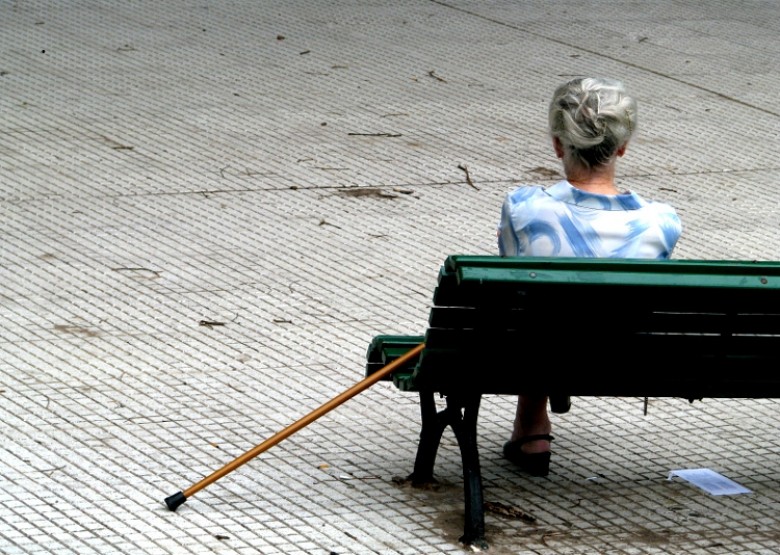
Vänstern behöver både de äldre och de yngre för att vinna. Men klyftorna som växer fram kan ställa grupperna mot varandra, skriver Michael McTernan, redaktör för Policy Network.
There is a divisive fault line emerging in European societies over who should pay more to alleviate the overlapping crises which darken the horizons of western democracies. This time the focus is not on bankers or the rich elite but on a political cleavage between young people and old people. Many European countries are on the edge of an intergenerational conflict which could hit home forcefully in the coming years.
The political residue of fiscal contraction has sparked-off a situation in which many pensioners want to protect what they have while younger people are increasingly frustrated with the opportunities afforded to them by their government and political class.
At the heart of the divide is the fact that public spending on healthcare and pensions, which primarily benefit the elderly, is disproportionately higher than spending on education and training, which by nature are geared towards younger generations, especially those who are under-skilled and under protected.
The social contract that binds society together is at risk of becoming unstuck. From this point it does not take a huge stretch of the imagination to foresee a scenario were young people increasingly get the impression that the welfare state is an exclusive preserve for older generations.
Such a scenario is not good for Europe’s mainstream political parties who depend on coalitions of support reaching across society. In particular it is a political nightmare for centre-left parties, whose electoral offer is grounded in promises of social progress and the principle of fairness. It also feeds into ‘anti-politics’ and dwindling faith in the capacity of the welfare state, government and democratic politics.
The numbers from recent elections offer further insights into the challenge of bridging such distributional cleavages for social democratic parties. In the recent Dutch election, the Labour party (PvdA), based on the average voter profile, had 20% less votes in the under 34 category, but 21% more voters in the plus 50 segment. On average they scored 25% less among students and 20% more among pensioners.
Likewise, in the 2009 German federal election the social democrats (SPD), a party with an average member age of almost 60, saw their vote share among 18-25 year olds fall from 36.9% in 2005 to 18.2%. Admittedly they lost votes across all age groups but the drop in support among young people was notably substantial. The Greens and the Pirate Party are now much more popular homes for large sections of Germany’s youth.
The picture is different in France, however, where Francois Hollande moved to put young people at the forefront of his political offer, reflected in the make-up of his winning coalition. The Socialist party energised young people, for example with their open primaries, and secured 29% of 18-24 year olds in the first round (57% in the second round run-off). They did less well in the 60+ category, where 37% voted for Sarkozy against 25% for Hollande.
Hollande now has to live up to his promises in a difficult economic situation in which pain has to be shared out. He has to find the political guts to build a contract between the young people who invested their hope in him and older generations who want protection and a degree of conservatism.
Centre-left parties understandably want to protect older generations, for both electoral and value-based reasons; and they also depend on young people as the next generation of voters. This balancing act is a major political challenge. In an era which demands fiscal realism it involves tough compromise, as prioritising one area – i.e more targeted social investment in education and training – means sacrifices in other areas – read pensionable age and contribution levels and perhaps universal benefits for well-off pensioners. Hard political pills to swallow.
To compound matters, solutions must be advanced in what Peter Hall of Harvard University describes as an economically insecure climate of sauve-qui-peut politics – a politics in which people, worried about clinging on to what they have, become more resistant to measures that might redistribute resources to others.
So what solutions are on the table in this climate? The idea of a ‘social investment pact’ between generations is an important one: a pact between grandchildren and grandparents whereby the social policy centre of gravity is shifted towards early childhood, skills and training. At the European level, the Europe 2020 strategy, if politically supported, could serve as a vehicle for more generous human capital formation funding whilst an “EU social investment pact” could be given more clout. The EU Social Fund has also been proposed as a vehicle to roll out a European-wide youth employment guarantee.
The problem is that such policy responses tend to fly in the face of the political climate identified by Hall, making it difficult to couch them in political strategy.
This is the challenge for progressive politicians. Such a strategy and narrative has to demonstrate the need for common cause in protecting the future of the next generation. Youth unemployment is now a grim social reality which majorities will increasingly be able to relate to. In many European countries it will be uncommon not to have a family member or friend who cannot tell a story of frustration about the plight of the young people they hold close.
As Raghuram Rajan has pointed out, the challenge of a new political compact between grandchildren and grandparents is to frame tough decisions in a way that allows older generations who have to make sacrifices to see the “ladder of programmes that help their children climb to a better future.”
Michael McTernan är redaktör för Policy Network, där texten publicerats tidigare.
Följ Dagens Arena på Facebook och Twitter, och prenumerera på vårt nyhetsbrev för att ta del av granskande journalistik, nyheter, opinion och fördjupning.


































